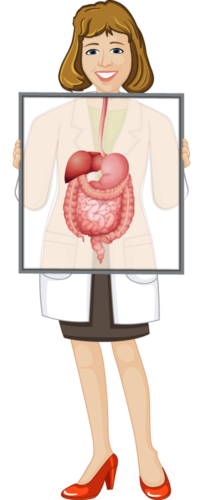Body Waste Facts
Body Waste ['bŏ-dē ] [wā-st]
Excess matter that is no longer needed by an animal body.
Body Waste

Your body uses food to keep it growing, learning, and healthy. But what happens to the food and other materials you take in when your body is finished with it?
Your body has a way of getting rid of excess materials, whether food matter, oxygen, carbon dioxide, water, salt, or waste. It is all taken care of by your body systems. These are a complex set of glands, organs, and processes that help to remove the waste materials from your body that are used up, created as a by-product, are no longer needed, or are extra. Your body systems include the kidneys, sweat glands, lungs, and rectum. Your nose and eyes also excrete invading dust and foreign materials. Let's find out more...
Body Waste: Urine

Your body is 60% water. This water needs to be flushed out and replaced all of the time. In your body, the excretory system helps to keep salts and urea from building up to dangerous levels and becoming toxic. The kidneys are two bean-shaped organs that remove these toxins from your blood and produce urine to carry them from the body.
This waste then trickles down the ureters — thin tubes that connect the kidneys to the bladder. Your bladder is a container for your urine that holds it there until you are ready to go to the bathroom. When you are ready to get rid of this waste, your body relaxes a small muscle and the urine travels down the urethra — another small tube — and out of your body. Drinking lots of water will help this system of your body to stay healthy and to work properly. The kidneys of a healthy adult can process fifteen liters of water a day.
Body Waste: Carbon Dioxide
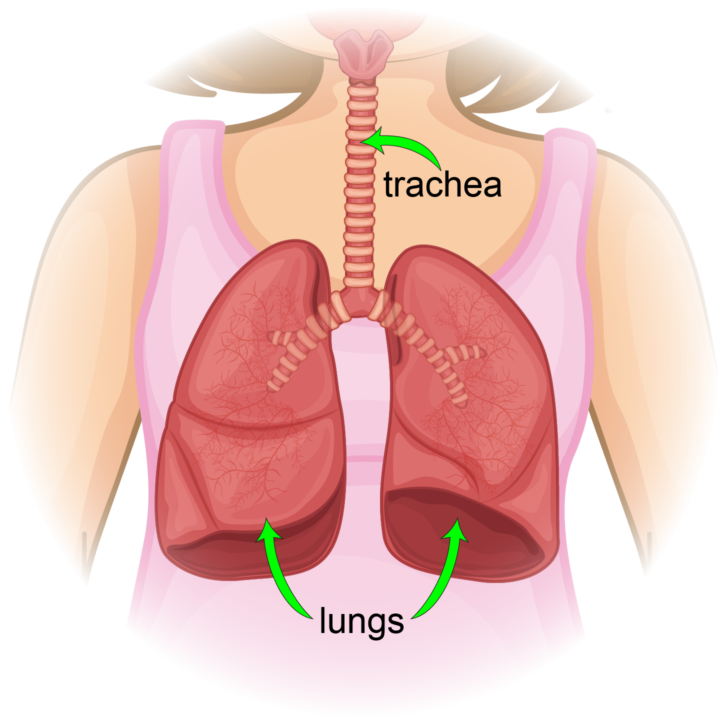
Breathing is the job of the lungs. We take air into our body when we inhale. But air is made of a variety of gases such as nitrogen, oxygen, argon, and carbon dioxide. We need oxygen, but we can not use the other gases. Dust and pollutants are also a part of the air we breathe. Our nose and throat help to filter out some of these particles so that they never make it to our lungs.
Our cells make carbon dioxide as a waste product from the process of converting food to energy. That carbon dioxide — and some water vapor — are removed by the lungs when we breathe and exhale them back into the atmosphere.
Body waste: Excrement

When we eat, our body begins to digest the food matter in our mouth. First, we grind the food with our teeth, and then our saliva helps to dissolve certain parts of it. When we swallow, the food moves into our stomach where additional chemicals are added, and the food is turned into a sort of liquid like a milkshake called chyme (pronounced kime).
This liquid passes into the small intestine, where the body adds special juices to digest fats and neutralize some of the acids that were created in the stomach. In the small intestine, a special hair-like lining known as villi absorbs the liquid parts. Those liquid parts — the nutrients — pass directly into the blood and are taken to all your cells throughout your body. These nutrients feed your cells the food they need.

Any leftover solid parts of the food move into the large intestine. These solid parts of your food are the parts that you have no use for and are passed from your body when you go to the bathroom. The scientific word for this matter is excrement or feces, you probably call it poop. The entire trip from mouth to rectum can take about 24 hours for the average person.
Body waste: Earwax
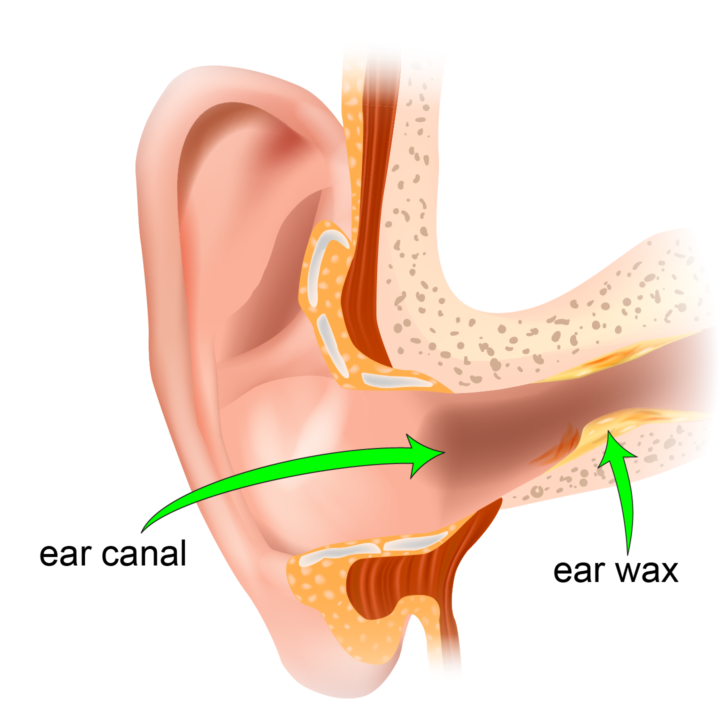
Our ear canal is a tunnel to the outside world. Dirt and grime can get into this passage. So our bodies have a way to capture this unwanted material. Earwax does the trick. It is a sticky product called cerumen that is created by a gland just inside the ear.
Cerumen keeps the skin of the ear canal moist and prevents infections. Sometimes this earwax leaves the body. This helps remove the unwanted dirt and germs.
Never stick your finger or other objects inside your ear. Leave it alone and let your body do its own work. It is possible to push the wax further into the canal, injure your eardrum, or scratch the ear canal.
Body waste: Nasal Discharge

Your nose is also a path for the germs and dust that can enter your body. Nasal discharge (snot) is a way for your body to remove unwanted debris. Sometimes you sneeze or blow your nose to help your body with this job.
If you see dirt in your nasal discharge, you do not need to worry. On rare occasions, you might even find an eyelash. Still no worries. This is very normal. If your nasal discharge is an unusual color such as green you should see your doctor, as this may be a sign of an infection.
Body waste: Tears
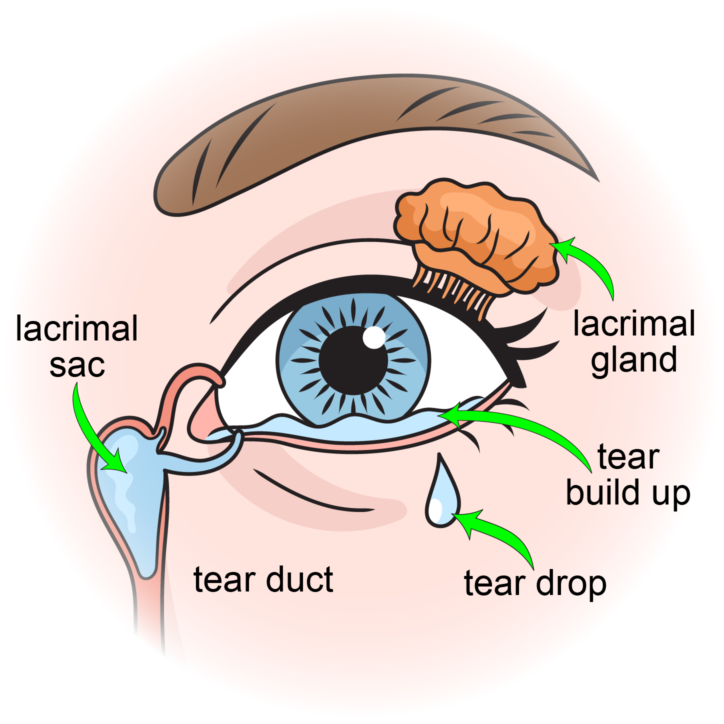
Tears are another way for your body to clean unwanted things from your body. Dirt and other objects can get into your eye, especially when the wind blows.
Your eyes naturally create tears to keep your eyes moist and to remove other matter that could irritate your eyeballs. Even smells like onion juice can bring on the tears.
Body waste: Sweat
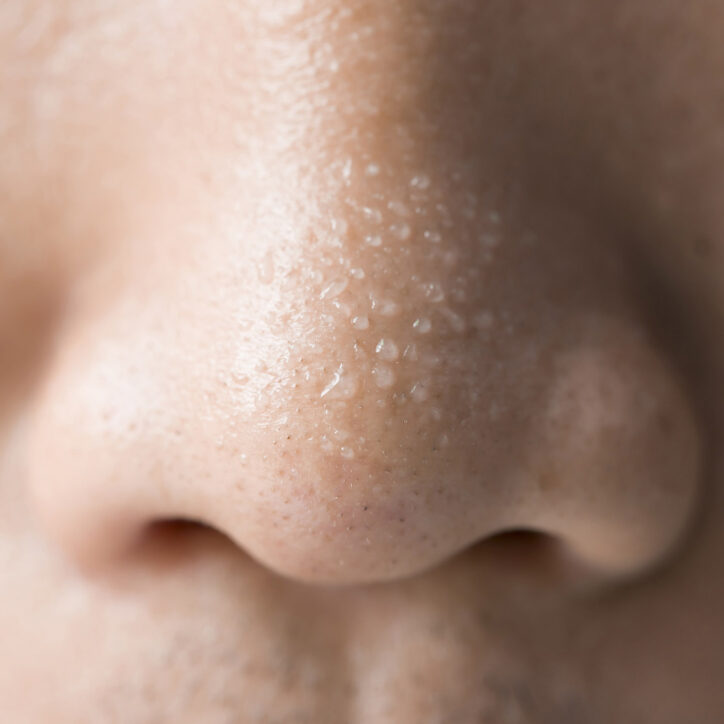
When your body gets too hot — and even sometimes when you get nervous — your body can sweat. The hypothalamus is a part of the brain that regulates your body temperature. When the hypothalamus gives the signal, the sweat glands in your skin begin to make sweat.

Sweat is also called perspiration and is made from waste in your body. Sweat contains urea, salts, sugars, and ammonia. It moves from the sweat glands onto the surface of your skin, and as the air moves across your skin, the sweat evaporates and cools off your body. If you sweat a lot, you will need to make sure to replace the moisture that evaporates from your skin by drinking lots of water, especially on a really hot day.
Sometimes sweat can give off an offensive odor. Other people might notice it and politely avoid you. To keep from being all by yourself, you may want to use some deodorant or antiperspirant. These are products that help to keep perspiration and smell to a minimum. Be sure to check with your parents to help select what is best for you.
Body waste: Gas
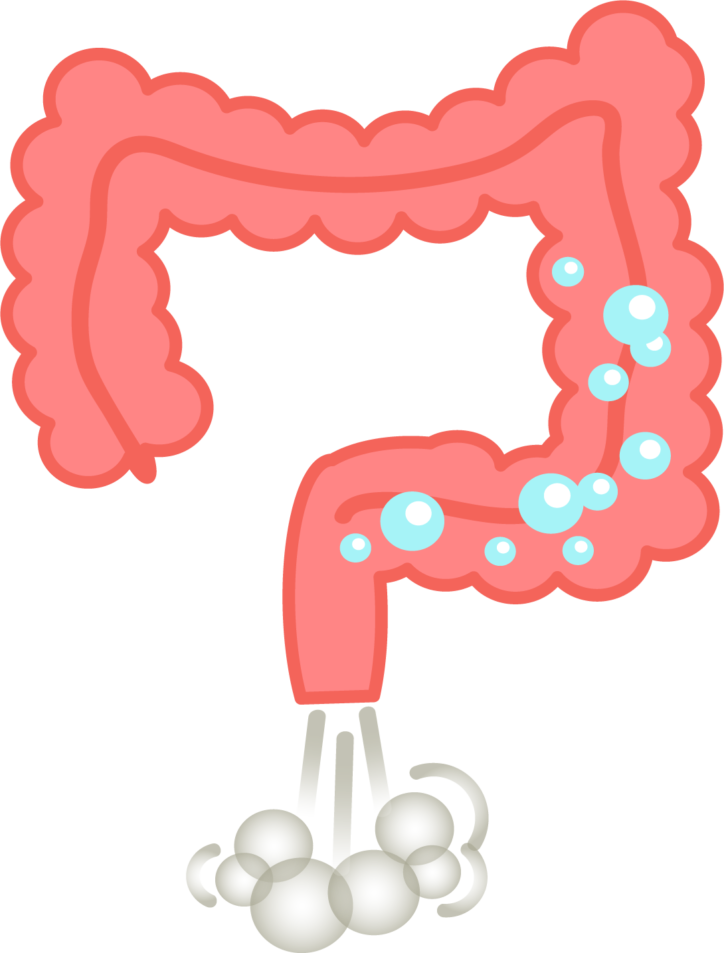
Millions of tiny little bacteria live in your intestine. They are there to help your body break down the food and allow you to get the most benefit from it. But the unfortunate part of these helpful little guys is that they create a sometimes smelly by-product when they work. They are perfect gas makers. This gas, also called flatus, can escape out of the mouth in a burp. Some burps sneak out in a tiny little hiccup. Other times a burp can explode without warning. Be sure to cover your mouth whenever a burp tries to escape.
When the gas moves its way through the intestine and escapes from the rectum, it can be known as flatulence or a fart. That can also be quiet or loud. It is usually the smellier of the two ways to escape the body because it has stayed inside your digestive system working and building up for a longer period of time. If you feel one of those coming on, excuse yourself to the restroom where you can handle it in privacy. No one even needs to know . . . well, except you. Sorry, head for fresh air next!!
Body waste: Vomit
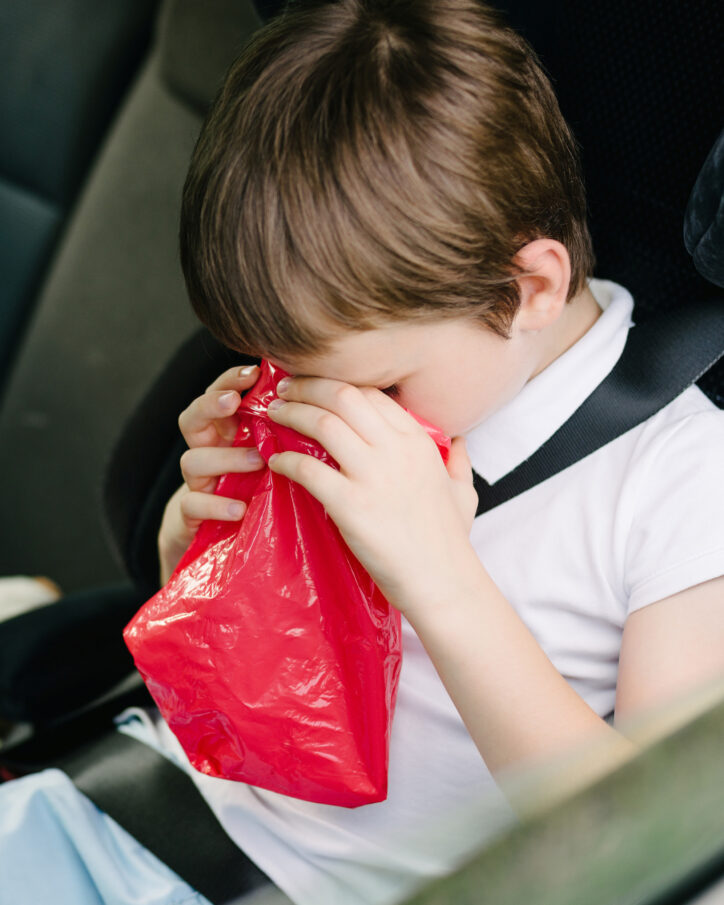
Sometimes your stomach wants to get rid of its contents. Maybe it is because you ate something that was spoiled or too spicy or you just ate too much. But sometimes it is because you have taken on a virus or germ that is irritating your stomach.
Whenever your stomach needs to get rid of what is bothering it, the brain sends a message and then the stomach muscles squeeze together to push out the food. The food comes up past the stomach, out through the esophagus and into the mouth.
Your food is often strange in color, and smells and tastes bad coming back out. Vomit can contain bile from the intestines, stomach acid, and rotten food which is partly digested. You may not feel well for several days or you may feel fine as soon as the problem is gone. Be sure to drink extra water to replace moisture you may have thrown up. It will help you to feel better faster.
Body waste: Pus
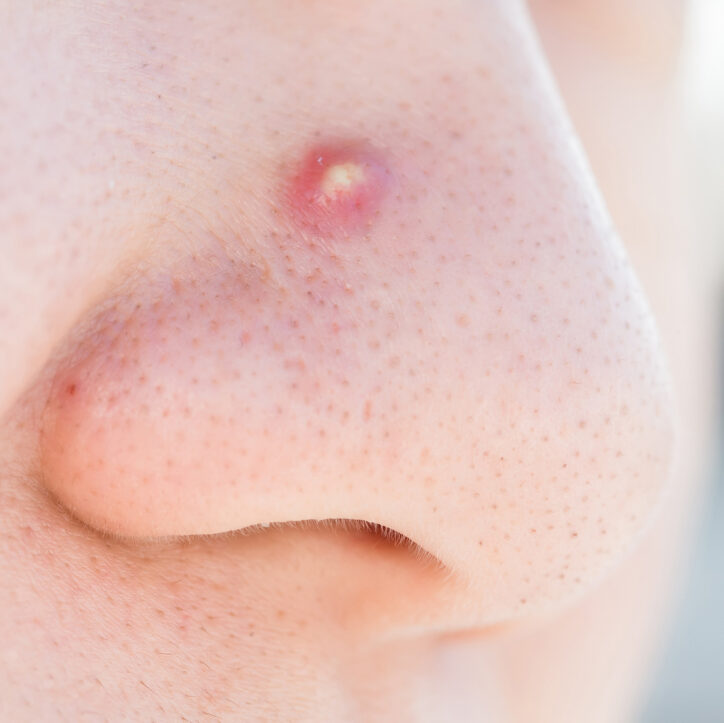
Pus seems like a gross, gooey and disgusting material that sometimes oozes from a cut or scratch. But really, pus is a good sign that your body is fighting against infection. Pus contains dead skin cells, dead bacteria, white blood cells and debris that your body is removing to make way for healing. In the fight that took place microscopically within your body white blood cells fought against the invading bacteria. Pus is the evidence that your body is doing its job.
Body waste is Necessary
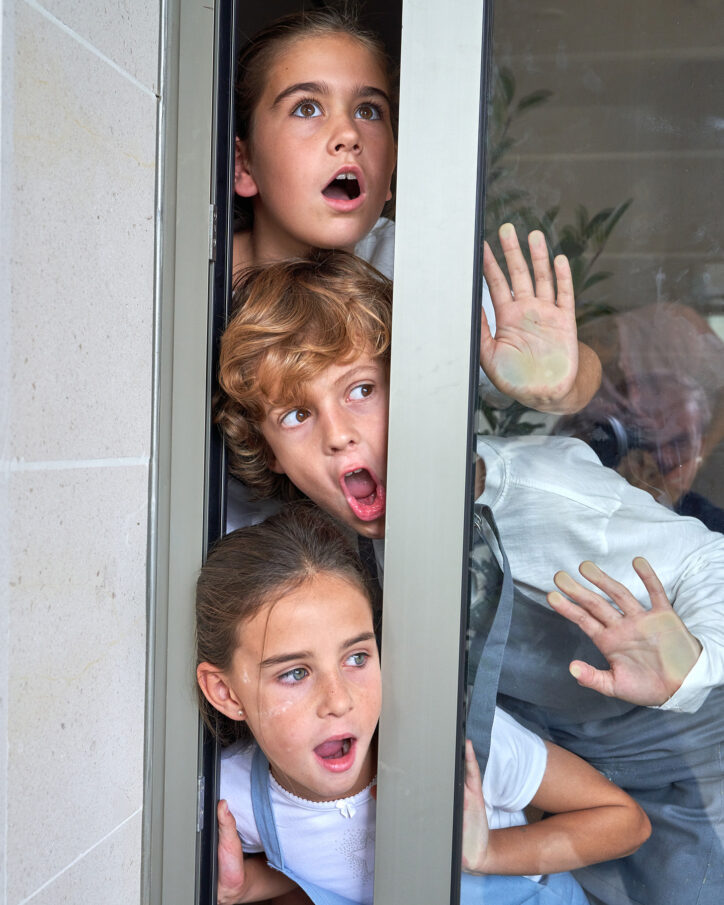
Body waste is a daily part of our bodily functions. It prevents illness, cleans our bodies from the inside out, provides protection, and gets rid of excess matter that our bodies do not use. Waste is not gross; it is a necessity!!
Fun Links
Find out all the secrets to your questions about your body. Search for your favorite or just browse to learn more. Great site to just enjoy. Quizzes, movies, current health information, famous guests, games, and also available in Spanish. Check out KidsHealth
Biology for Kids — the perfect place to learn about all aspects of the human body. Covers respiration, the digestive system, the skeletal system, and other body systems.
This site covers the Excretory System Basics.
This site has just what you are looking for — Grossology!
Check out Icky Q & A to learn more about waste products from earwax to sweat to vomit!
A detailed look at the respiratory system.
A detailed look at the digestive system.
Top 10 Questions
February 2010
Thanks to Dr. Naya Antink, Pediatrician, Saint Alphonsus Medical Group; and Dr. Heather Owens, Pediatrician, Saint Alphonsus Medical Group for the answers.
-
What is the hardest food to digest?
There is no one food that is difficult to digest. There are foods you digest partially and foods you digest completely. If you digest a food particle completely, then all of the nutrients get absorbed into your body. If there is something your body cannot digest, it gets pooped out. (From Cameron in Mrs. Schweitzer's class at Riverside Elementary School in Boise)
-
Why do some feces float?
Most of the time feces float because there is a fat content. If you eat a lot of fatty foods, the grease does not digest completely and it comes out with the poop. This helps the feces float in the water. (From Caleb in Mrs. Boehne's class at McDonald Elementary School in Moscow)
-
Why do farts stink?
Not all farts stink. Farts are gas that comes out of the rectum. The gas usually consists of oxygen that we've swallowed and the oxygen in the intestine does not stink. The bad smell from farts can come from certain foods that we eat that contain sulfides, or it can be from the good bacteria in our intestines. When these bacteria process certain types of sugar, like those in beans, it creates gas that smells. Some farts stink and some don't, but they are all normal. (From Conner in Mrs. Woodall's class at Dalton Elementary School in Dalton)
-
Why do we get pimples and pus?
Usually, pimples are a collection of oil. There may be bacteria growing on the skin, and that bacteria feeds off your oils and makes a little bit of its own waste as more oil and a pus-like substance. Your body will wall this pus off and hold onto it for a bit, forming a pimple. (From Danielle in Mrs. Batazzi's class at Sawtooth Elementary School in Meridian)
-
Why does sweat taste salty?
Sweat tastes salty because there is quite a bit of salt in sweat. There is salt floating around in your bloodstream and when you sweat, this salt and water solution moves through the ducts and out through the pores on your skin. (From Bailey in Mrs. Woodall's class at Dalton Elementary School in Dalton)
-
What happens when you are constipated?
Constipation is when the poop is hard and painful. When you have a stomach bug, food and water can fly through your intestines, making your poop really watery. When you are constipated, it's the opposite. Food stays in your body for too long. It then gets dryer and dryer, and it gets harder and harder, making it hard to poop out. This is constipation. (From Rich in Mrs. Mantooth's class at Riverside Elementary School in Boise)
-
Why are our muscles sore after working out?
Your muscle cells create waste products even from just walking around. Sometimes we get overloaded with those chemicals that are broken down out of our muscle proteins, and those can cause our blood vessels to be a little twitchy and make us feel more sore than usual. They are natural chemicals that are made on a daily basis, but when you work out you produce them in larger quantities. These quantities can be somewhat irritating and can cause sensations of pain or soreness. (From Tyler in Ms. Ewing's class at Les Bois Junior High School in Boise)
-
What causes blackheads, how can you get rid of them, and why are they always on your nose?
The blackhead is the collection of dead skin cells and oils that our body makes (it is the start of the acne process). The little cave that is created can get plugged up. When bacteria comes and feeds off of that, it may create a little reaction (like a little infection). This gets red around it and it can go from being just a blackhead to pus-filled. The craters are everywhere on your body, but there are more of them on your nose. That's why we tend to get more blackheads on our noses. (From Pat in Mrs. Bate's class at Windsor Elementary School in Spokane)
-
How small is the hole that sweat comes out of?
It's a micro. You'd have to look at it under the microscope to look at each little sweat gland and follicle. They are microscopic. (From Jackson in Mrs. Mantooth's class at Riverside Elementary School in Boise)
-
What color should your poop be?
Poop is usually brown. That's because our liver has to get rid of by-products that have a certain pigment, or color, to them. That color, when passed through our intestines, is brown. If foods move through your system at a faster pace, like when you have diarrhea, your poop may be absent of the brown color and look green. This is nothing tremendous. It just tells you that things are moving quickly. Normal poop, however, is brown. (From many students all over the state)
